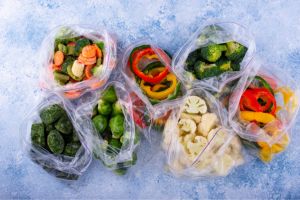

Are you prepared for anything life throws your way? In today’s uncertain world, being equipped to handle emergencies and disasters is more important than ever.
Whether you’re a seasoned prepper or just starting to build your survival skills, there’s always room for improvement.
In this comprehensive guide, we’ll explore the 50 common mistakes even expert preppers make and provide practical solutions to fix them.
From overlooked essentials to ineffective strategies, we’ll uncover the pitfalls that can hinder your preparedness efforts. Whether it’s stockpiling the wrong supplies, neglecting important skills, or underestimating potential threats, we’ll address each issue head-on and offer expert advice to help you correct and enhance your survival plan.
Mistakes Related To Food Storage And Preparation
One of the most common mistakes preppers make is not properly storing and preparing food for long-term survival.
While stockpiling canned goods and non-perishables is a good start, it’s important to consider factors such as shelf life, nutritional value, and variety.
1. Overlooking Proper Rotation Of Stock
One of the most common mistakes is neglecting the rotation of food items. Not rotating your stock can result in food spoiling beyond its expiration date, rendering it unfit for consumption.
To avoid this mistake, utilize the “first in, first out” method. Additionally, employ an inventory system or labeling method to easily track the expiration dates of your supplies.
2. Improper Storage Techniques
Improper storage techniques can quickly compromise the quality of your food supply. Common mistakes include using inappropriate containers, poor sealing, and inadequate considerations for temperature and humidity.
Related: 5 Food Storage Myths That Are Ruining Your Stockpile
3. Neglecting Variety and Nutritional Balance
Amidst the focus on long-term preservation, preppers often overlook the importance of a well-rounded stockpile. Relying solely on canned goods or processed foods lacks the necessary nutritional balance for sustained survival.
Include a variety of food groups in your storage, such as grains, legumes, protein sources, fruits, and vegetables.
4. Improper Meal Planning And Cooking Knowledge
You should not only stockpile food, but also have the ability to prepare them into nourishing meals. Ignoring this aspect leads to limited cooking options, bland meals, and potential wastage.
Create a meal plan based on the types of food you have in your stockpile. Research and practice recipes that incorporate different ingredients, taking advantage of the resources you have available.
5. Failure To Develop Preservation Skills
Successful prepping involves learning and practicing preservation techniques to extend the shelf life of fresh ingredients or perishable goods. Neglecting these skills can limit your food options during emergencies.
Consider growing your own fresh produce and learning basic food preservation techniques such as canning and dehydrating.
Mistakes Related To Water Procurement And Purification
Another common mistake preppers make is not having a sufficient water supply or failing to properly purify water sources.
6. Over Reliance On Stored Water
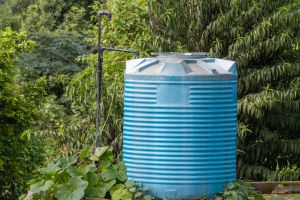 Some preppers rely solely on stored water without considering the need for replenishment in prolonged emergencies.
Some preppers rely solely on stored water without considering the need for replenishment in prolonged emergencies.
Establish a water collection system, such as rainwater harvesting, to supplement stored water. Utilize appropriate filtration techniques to purify the collected water.
⇒ Learn How To Build Your Own Rainwater Harvesting And Purification System
7. Insufficient Water Storage
Inadequate stored water means potential shortage and increased vulnerability during emergencies.
Calculate the daily water needs, minimum of one gallon per person, and store ample supplies for a protracted duration.
8. Neglecting Water Quality
Contaminated water can lead to illnesses, reducing physical ability during a crisis.
Regularly rotate stored water, employing a “first in, first out” system to maintain freshness. Use water treatment solutions such as chlorine or water stabilizers to prevent bacteria growth.
9. Lack Of Water Procurement Knowledge
The inability to obtain or purify water effectively can be life-threatening during emergencies.
Research local water sources, such as rivers, streams, or lakes, and learn appropriate purification methods. Carry essential water purification tools like portable water filters or chemical disinfection tablets.
10. Failure To Filter Sediment
Sediment can clog filters and render purification methods ineffective. Utilize a sediment filter or allow water to sit, allowing the sediment to settle before proceeding with purification techniques.
11. Overlooking Boiling As A Purification Method
 Boiling is highly effective in killing most pathogens, such as bacteria and viruses, and is cost-effective.
Boiling is highly effective in killing most pathogens, such as bacteria and viruses, and is cost-effective.
Have a reliable heat source and equipment capable of boiling water. Maintain a rolling boil for at least one minute, or three minutes at higher altitudes, to ensure water safety.
12. Ignoring The Importance Of Water Disinfection
Waterborne diseases, such as cholera or typhoid, can weaken individuals and diminish their ability to survive during emergencies.
Utilize effective water disinfection methods, such as chlorine or iodine tablets, careful UV light exposure, or chemical disinfectants like bleach. Follow expert guidelines on concentration and contact time.
13. Not Planning for Water Filtration Breakdowns
Water filtration equipment may break or become unusable during emergencies, causing uncertainty and health risks.
Always keep backup water filters and alternative purification methods in your emergency supplies. Learn primitive water filtration techniques like improvised charcoal filters.
14. Failing To Educate On Alternative Water Sources
Limited knowledge and access to alternative sources may result in a missed opportunity to procure adequate water during crises.
Learn about underground water sources like wells and how to access and purify this water.
15. Ignoring Proper Hygiene And Sanitation Practices
Poor sanitation can lead to the contamination of water supplies and the spread of diseases within the community.
Related: 4 Diseases That Could Become Deadly After SHTF
Include hygiene supplies (e.g., soaps, sanitizers, toilet paper) in your preparedness kit. Establish basic sanitation practices like using designated toilet areas and practicing proper handwashing techniques.
Mistakes Related To Shelter And Emergency Supplies
When it comes to shelter and emergency supplies, many preppers make the mistake of focusing solely on temporary solutions rather than long-term sustainability.
16. Not Thinking Long-Term
 While having a tent or a temporary shelter is important for immediate needs, it’s equally important to have a plan for long-term shelter in case of a prolonged crisis.
While having a tent or a temporary shelter is important for immediate needs, it’s equally important to have a plan for long-term shelter in case of a prolonged crisis.
Invest in durable and sustainable shelter options such as a well-insulated cabin or a converted shipping container.
Consider stockpiling essential emergency supplies such as firewood, tools, and extra clothing to ensure you’re adequately prepared for extended periods of survival.
Mistakes Related To Self-Defense And Personal Safety
In a survival situation, personal safety is paramount. However, many preppers make the mistake of not adequately preparing for self-defense or neglecting to acquire the necessary skills to protect themselves and their loved ones.
17. Overemphasis On Gear
In a critical situation, relying solely on gear without the necessary skills may result in a false sense of security, leading to increased vulnerability and potential harm.
⇒ A US Army Officer’s Field Guide to Surviving a New Civil War
Prioritize comprehensive training that covers situational awareness, threat assessment, unarmed combat techniques, and improvised weapon usage.
18. Lack Of Realistic Training
Many preppers solely rely on theoretical knowledge and fail to participate in realistic training scenarios. Without practical experience, preppers may struggle to adapt and respond effectively during high-stress situations.
In a real-life scenario, the absence of realistic training can hinder effective decision-making, coordination, and execution, compromising personal safety and self-defense effectiveness.
19. Neglecting Physical Fitness
Preppers often underestimate the importance of physical fitness. Maintaining an adequate level of physical strength, endurance, and flexibility is crucial for self-defense.
Poor physical fitness can limit your ability to evade or escape threats, endure extended periods of physical stress, and effectively execute self-defense techniques.
20. Avoiding Legal Knowledge
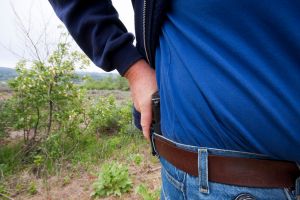 Understanding local laws pertaining to self-defense is paramount for responsible preppers. Ignorance of these laws may lead to unintended legal consequences, despite acting in self-defense.
Understanding local laws pertaining to self-defense is paramount for responsible preppers. Ignorance of these laws may lead to unintended legal consequences, despite acting in self-defense.
Related: 14 Self Defense Items You Should Never Have Around
Engaging in self-defense actions without a thorough understanding of the law can have severe legal implications, resulting in criminal charges, civil lawsuits, or both.
21. Neglecting De-escalation And Conflict Resolution Skills
A lack of de-escalation and conflict resolution skills may escalate minor disputes into life-threatening situations, compromising personal safety, and potentially leading to severe legal ramifications.
Learning how to recognize and control escalating situations can significantly enhance your ability to avoid confrontation and ensure personal safety.
Mistakes Related To Medical Preparedness
Medical emergencies can happen at any time, and being prepared to address them is crucial for survival.
22. Neglecting First Aid Skills
In an emergency, a prepper without first aid training may mistakenly apply a tourniquet too tightly, leading to injury or even amputation.
Acquire first aid training from reputable organizations and regularly practice and refresh these skills.
23. Insufficient Medical Supplies
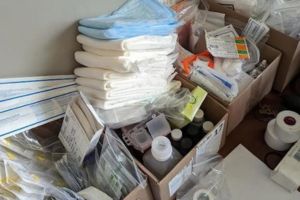 A prepper, solely focused on physical injuries, fails to account for a common infection outbreak, resulting in inadequate antibiotic supplies or other necessary medications.
A prepper, solely focused on physical injuries, fails to account for a common infection outbreak, resulting in inadequate antibiotic supplies or other necessary medications.
Related: How To Properly Store Over-The-Counter Drugs And Medical Supplies
24. Lack Of Continuity Of Care
Neglecting pre-existing conditions or failing to address chronic illnesses properly can have serious consequences during a crisis.
Prioritize continuity of care by acquiring an extended supply of necessary medications, seeking advice from healthcare professionals on alternative options, maintenance procedures for medical equipment, and developing contingency plans for regular checkups or treatment.
25. Ignoring Mental Health Preparations
Surviving a crisis involves not only physical resilience but also mental fortitude. Preppers often overlook the importance of mental health preparedness, assuming they can handle stressful situations without consequence.
Mistakes Related To Communication And Information Gathering
In a survival situation, communication is key. However, many make the mistake of not having a reliable communication plan or failing to gather essential information during normal times.
26. Overlooking Communication Plan Development
The lack of a communication plan can lead to confusion, overlapping messages, delays in support coordination, and difficulties in locating or contacting family members, group members, or emergency services.
It’s best to develop a written communication plan that includes designated primary and alternative communication methods, emergency contact numbers, meeting points, and a clear communication hierarchy.
27. Failure To Diversify Communication Methods
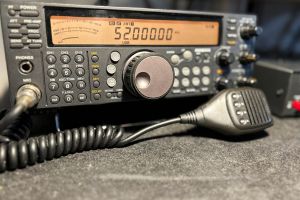 One of the most significant mistakes is relying solely on one method of communication, such as cell phones or internet-based messaging platforms. In emergency situations, these modes of communication may become unreliable due to power outages, network congestion, or physical infrastructure damage.
One of the most significant mistakes is relying solely on one method of communication, such as cell phones or internet-based messaging platforms. In emergency situations, these modes of communication may become unreliable due to power outages, network congestion, or physical infrastructure damage.
Restricted communication options can isolate you from vital information, hinder coordination with family or group members, and limit access to emergency services.
28. Neglecting Regular Information Updates
Another common mistake is failing to stay informed about ongoing events, news, and local emergency protocols. In times of crisis, information and situational awareness are key to making informed decisions and taking appropriate actions.
Related: Best Methods To Spot Fake News
You should actively seek out information from reliable sources.
29. Failing To Secure Sensitive Information
Unauthorized access to personal information can lead to identity theft, financial loss, or manipulation of vital records, reducing preppers’ ability to access resources or assistance during emergencies.
Store sensitive information in secure, waterproof containers like fireproof safes or lockable bags.
30. Neglecting Interpersonal Communication Skills
Poor interpersonal communication skills can lead to misunderstandings, increased stress levels, conflicts within groups or families, and breakdowns in collaborative decision-making.
Joining prepper groups can provide opportunities for interpersonal skill development and enhance overall preparedness efforts.
Mistakes Related To Community And Networking
Surviving alone is challenging, and many make the mistake of not prioritizing community and networking. Building a strong support system can significantly enhance your chances of survival and provide a sense of belonging during difficult times.
31. Neglecting To Establish Connections
In a disaster scenario, trying to do it alone for a long period can quickly become overwhelming and unsustainable.
Attend local emergency preparedness groups, community events, and neighborhood gatherings to meet like-minded people who share your commitment to preparedness.
32. Hoarding Without Reciprocity
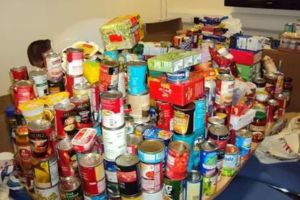 Becoming known as the “lone wolf” prepper can deter others from wanting to collaborate and form mutually beneficial alliances. Foster a spirit of reciprocity by sharing skills, knowledge, and resources, and trade surplus items with others in your community, without disclosing the full extent of your preps.
Becoming known as the “lone wolf” prepper can deter others from wanting to collaborate and form mutually beneficial alliances. Foster a spirit of reciprocity by sharing skills, knowledge, and resources, and trade surplus items with others in your community, without disclosing the full extent of your preps.
33. Complete Secrecy
Building trust becomes difficult, hindering effective collaboration and shared preparation efforts.
Start small by sharing basic preparedness information and gradually build trust within your community.
34. Mistake: Ignoring The Skills And Knowledge Of Others
Failure to tap into the diverse expertise within your community can limit your ability to thrive during a crisis.
Identify the skills and knowledge present in your community, you might learn new and helpful information from others.
35. Failure To Organize And Communicate
Poorly organized efforts lead to missed opportunities, inefficiency, and potential conflicts.
Establish clear communication channels with your family and create a plan for coordinated action during emergencies.
36. Relying Solely On Online Communities
When the internet is down or in a localized disaster, your virtual community may not be able to provide the necessary support and assistance.
Balance online networking with building face-to-face relationships within your local community.
Mistakes Related To Mental And Emotional Preparedness
Surviving a crisis requires not only physical preparedness but also mental and emotional strength. However, many preppers make the mistake of neglecting their mental and emotional well-being.
37. Neglecting Mental Health
One of the most common mistakes preppers make is overlooking the importance of mental health. In high-stress situations, mental fortitude is paramount.
Related: These 10 Types of People Will Die First When SHTF
Mental health maintenance, through practicing self-care, seeking therapy if needed, and adopting healthy coping mechanisms, equips preppers with the resilience to face challenges head-on.
38. Focusing Only On Physical Preparedness
While physical preparedness is crucial, placing disproportionate emphasis on it can lead to the neglect of mental and emotional readiness.
39. Ignoring Emotional Intelligence
Developing emotional intelligence is vital for managing relationships, conflicts, and stress. Understanding and regulating emotions enhances problem-solving ability during times of crisis.
40. Overloading On Negative News
Overconsumption of pessimistic news can trigger anxiety and despair. Balance the intake of information by staying informed but setting limits on news consumption. Focus on actionable information and positive stories to maintain a healthy mindset.
41. Underestimating The Importance Of Community
 Preppers often fall into the trap of isolating themselves, emphasizing self-reliance. However, fostering a strong community creates a support network during challenging times.
Preppers often fall into the trap of isolating themselves, emphasizing self-reliance. However, fostering a strong community creates a support network during challenging times.
Engage with like-minded individuals, join prepper groups or participate in community initiatives.
42. Rigid Planning And Unrealistic Expectations
While planning is essential, being overly rigid can impede adaptability. Be prepared for unexpected obstacles and be willing to revise plans if needed. Employ a flexible mindset to adapt to evolving situations effectively.
43. Lack Of Practice And Skills Development
Merely acquiring knowledge about survival skills is not enough. Practice regularly to develop proficiency and increase confidence. Cultivate a growth mindset and embrace ongoing learning to bolster resilience and problem-solving abilities.
44. Failure To Cultivate A Sense Of Purpose
Having a clear sense of purpose not only provides motivation but also guides decision-making during difficult times. Reflect on personal values and align prepping efforts with these principles to foster a strong sense of purpose.
45. Neglecting Mental Imagery And Positive Visualization
Visualization is a powerful tool to enhance mental preparedness. By mentally rehearsing challenging scenarios and visualizing positive outcomes, individuals can cultivate a calm and focused mindset during stressful situations.
46. Inadequate Separation Of Prepper Identity From Day-to-Day Life
It is crucial to strike a balance between preparedness efforts and maintaining a fulfilling daily life. Avoid becoming consumed by prepping to the extent that it detracts from personal relationships, career, hobbies, and overall well-being.
47. Unrealistic Expectations Of Others
Preppers often face criticism or ridicule from friends and family, leading to frustration and strained relationships. Recognize that everyone’s journey is different, and it is not necessary for others to share the same level of commitment to preparedness. Focus on leading by example and offering support when needed.
48. Financial Overextension
Reckless spending on prepping supplies can lead to financial stress and strain. Develop a realistic budget, prioritize essential items, and gradually build supplies over time. Emphasize quality over quantity and focus on necessary skills and knowledge, which can often be acquired at minimal cost.
49. Failing To Seek Professional Advice
Preppers often rely solely on their own knowledge or opinions found online. Seek the guidance of professionals in areas such as mental health, disaster preparedness, and relationship building to bolster preparedness efforts. Remember, there is no shame in seeking expert advice.
50. Lack Of Self-Reflection And Adaptation
Continual self-reflection helps identify areas for growth and improvement. Regularly assess and adjust mental preparedness strategies, recognizing that personal circumstances, goals, and challenges evolve over time.
Survival preparedness is a lifelong journey, and even expert preppers make mistakes along the way. By identifying and addressing these mistakes head-on, you’ll be able to enhance your preparedness efforts and become a more effective survivalist.
From food storage and self-defense to medical preparedness and mental well-being, each aspect of survival planning plays a vital role in your overall resilience.
You may also like:
 Veggies You Only Plant Once And Harvest Forever
Veggies You Only Plant Once And Harvest Forever
US Nuclear Target Map. Do You Live in The Death Zone? (Video)
Forgotten Preservation Hacks that Will Save You Money
6 Things FEMA Doesn’t Want You To Know
4 Shocking Survival Lessons From The Australian Pioneers


